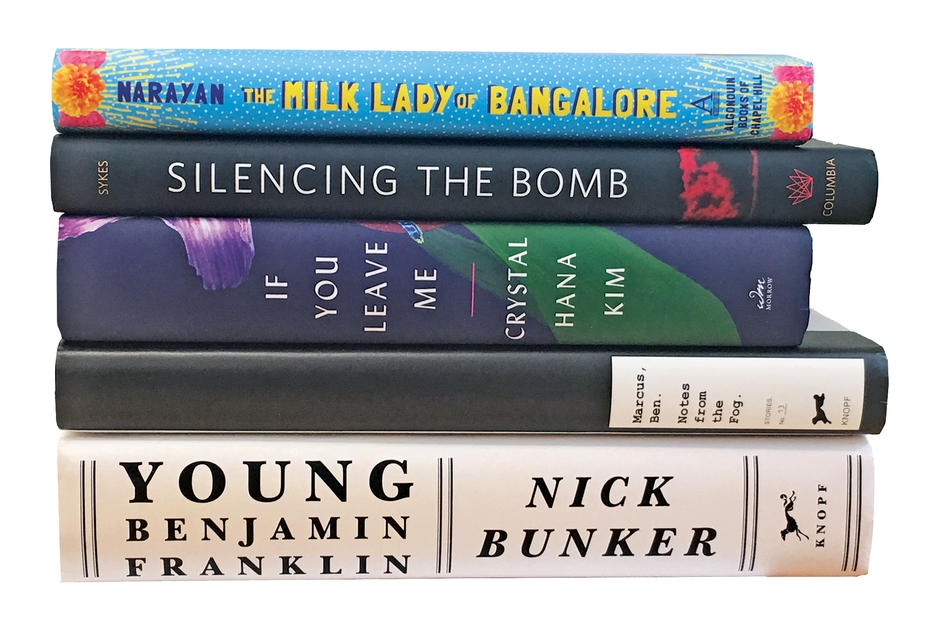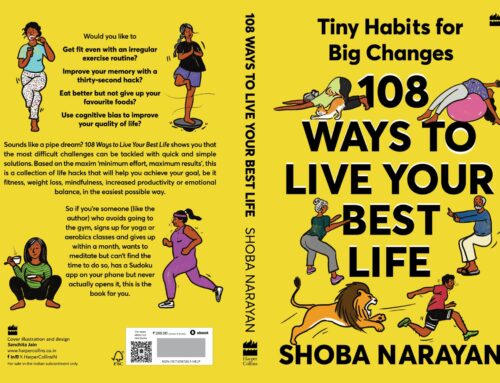No points for guessing which. Thanks for the plug, Columbia Magazine.

If You Leave Me
by Crystal Hana Kim ’09CC, ’14SOA
It’s 1951, the middle of the Korean War, and sixteen-year-old Haemi is living with her mother and brother in a refugee camp in the seaside city of Busan. Every night, Haemi sneaks out to meet a childhood friend, a boy named Kyunghwan. Though she clearly cares for Kyunghwan, Haemi ends up marrying his richer cousin. But Haemi is stricken with dark moods and irrational thoughts that eclipse any chance of happiness for her. Kim’s astute portrayal of Haemi’s mental illness elevates this compelling debut novel beyond a standard wartime story of star-crossed love.
Notes from the Fog
by Ben Marcus
Ben Marcus, the director of Columbia’s graduate fiction-writing program, is known for poetic and inventive prose and also ominous, often dystopian themes. All of that is again on display in his latest story collection, which pairs dark but realistic stories (a Jewish boy who grows up to be an anti-Semitic conspiracy theorist, for example) with unsettling questions about the growing influence of technology (in one story, the narrator falls victim to a dangerous, mood-altering spray). This is Marcus’s most accessible book and a great starter for readers unfamiliar with his oeuvre.
Young Benjamin Franklin
by Nick Bunker ’82GSAS, ’83JRN
We think of Benjamin Franklin — printer, journalist, inventor, diplomat, and Founding Father — as a master of ingenuity. But how did he get that way? In a new biography, Pulitzer Prize finalist Nick Bunker examines Franklin’s life from birth through the age of forty-one. It’s a fascinating portrait not only of a complicated man but also of the challenges of life in early Colonial America.
The Milk Lady of Bangalore
by Shoba Narayan ’95JRN
After two decades in Manhattan, journalist Shoba Narayan moves back to her native Bangalore and is surprised in her first week to find a cow in the elevator of her modern apartment building. The cow belongs to Sarala, who sells milk across the street. Narayan befriends Sarala, and the two women eventually embark on an adventure to buy a new cow for Sarala’s stand. The book is charming and funny, but also a perfect window into the many contrasts of modern Indian society.
Silencing the Bomb
by Lynn R. Sykes ’65GSAS, ’18HON
In December 2016, the Bulletin of the Atomic Scientists — the academic journal that covers the impending nuclear threat — moved its Doomsday Clock forward, indicating that we are closer to nuclear annihilation than at any other time since 1952. Seismologist Lynn Sykes, a professor emeritus of earth and environmental sciences at Columbia’s Lamont-Doherty Earth Observatory, has spent his career trying to push the clock in the opposite direction. Sykes is part of a movement of scientists advocating for a halt to nuclear testing. Here he tells that movement’s story, explaining how he has used his discoveries in plate tectonics to fight for peace.




Leave A Comment